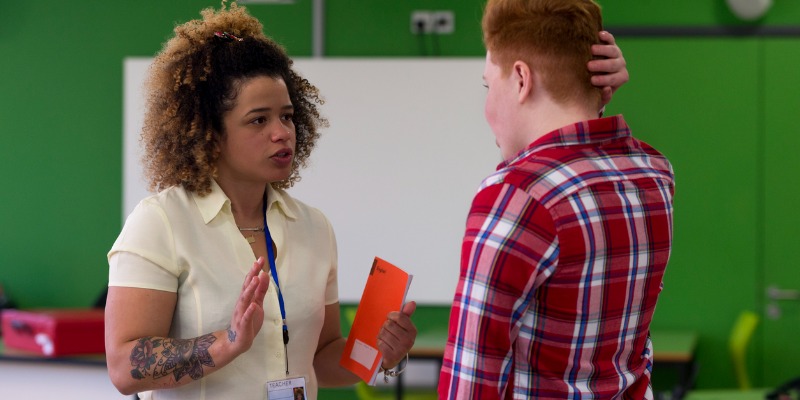Ontario takes good first step to restoring foundation blocks of learning in schools

Last week at a press conference in Toronto, Ontario Education Minister Stephen Lecce said the province’s kindergarten curriculum is going “back to basics,” expanding on a similar announcement for older grades last year. The proof will be in the pudding, but employing phonics and direct instruction in math and reading is a step in the right direction.
Kindergarteners don’t read novellas or solve algebraic equations, but they form their understanding of early reading and math. In the classroom, the foundational building blocks—absorbing knowledge, memorizing facts, mastering skills—are laid to inform their critical thinking when they later turn to more advanced concepts.
For several years, so-called “discovery math” and related methods have been taught in classrooms across Canada including Ontario. This approach encourages children to invent their own ways to solve math problems instead of first receiving clear direct instruction from teachers or good old memorization. At some point, every child will need to discover the answers to questions for themselves. But by asking children to solve math problems before those foundational building blocks of understanding are in place, we cause the whole house to collapse.
Progressive curriculum trends have similarly gripped reading instruction in many Canadian classrooms, with traditional phonics (essentially, learning to decode words by sounding them out) replaced with derivations of so-called “whole word reading.”
What has been the result?
According to PISA tests, the gold standard of standardized testing of 15-year-olds across the globe, from 2003 to 2022, the most recent year of data, Ontario test scores in math have declined by 35 points and reading scores have declined by 12 points. For context, PISA characterizes a 20-point drop as one year of lost learning. Put differently, Ontario 15-year-olds are nearly two years behind in math and about one half-year behind in reading from where they were roughly 20 years ago.
The Ford government’s COVID school closures—provincewide for 27 weeks minimum, longer than any other province—provide even more reason to get students back on track. Research shows school closures caused significant learning loss.
For example, in math, students in grades 3, 6 and 9 all experienced a drop in average math scores on Ontario’s EQAO standardized tests, with Grade 9 average scores dropping from 75 per cent in 2018-19 (pre-COVID) to 52 per cent in 2021-22. Around the same time, there were changes to the math curriculum, and Grade 9 academic and applied math were merged—but the downward trend across all grades mirrors the worrying PISA trajectory.
For many parents in Ontario, the Ford government’s recent reforms can’t come soon enough. Premier Ford promised to reform the K-12 math curriculum back in 2018 and countless parents are frustrated that their kids are struggling.
Some parents are pulling their children from government public schools and enrolling them in independent schools where parents have a say in how their children are taught. From 2000/01 to 2019/20, the share of student enrolment in independent schools in Ontario increased from 4.9 per cent of total students to 6.9 per cent while enrolment in government schools declined from 95.1 per cent to 92.8 per cent.
Still, most Ontario students attend government public schools. And because Ontario does not empower middle- and lower-income families to send their children to independent school by allowing a portion of their tax dollars to follow their children to schools of their choice, as is the case in Quebec and every province west of Ontario, many families have no other affordable option.
If the Ontario government must mandate a provincial curriculum, rather than enforcing standards while allowing schools to experiment, then it should stick to evidence-based learning methods. So in that sense, the recent reforms are good news. Progressive inquiry-based learning might sound more exciting, but there’s nothing exciting about a child who despises school and encounters lifelong struggle because he was never properly taught to read.
Tumbling math and reading scores in Ontario show something isn’t working. It’s good the government is attempting to bring foundational skills back into classrooms.
Author:
Subscribe to the Fraser Institute
Get the latest news from the Fraser Institute on the latest research studies, news and events.

